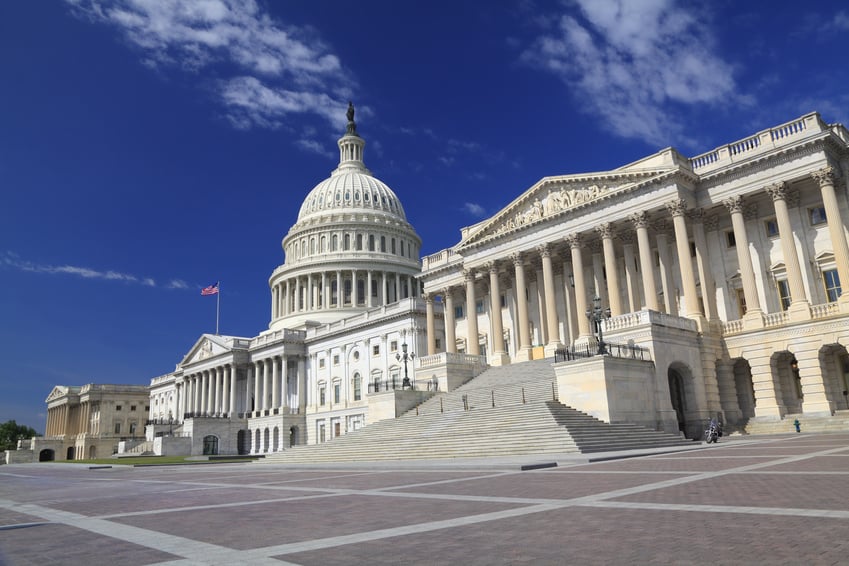On October 20, 2016, the US Department of Justice (DOJ) and Federal Trade Commission (FTC) issued antitrust guidance for human resource (HR) professionals and others involved in hiring and compensation decisions. The guidance warns of criminal prosecution against companies, HR professionals and other individuals, for formal and informal wage-fixing or no-poaching agreements between companies. The agencies also encourages companies, HR professionals and other individuals to quickly report antitrust violations to the DOJ under its Corporate and Individual Leniency Policies.
Background
That agreements between companies not to poach each others’ employees or to fix salaries or benefits can constitute unlawful antitrust violations under US law is not new. Such anti-competitive agreements were historically addressed through civil enforcement actions. For example, there has been a growing trend of employee class action claims against companies for allegedly engaging in such no-poach agreements, which have resulted in very large settlements. The DOJ has also secured civil consent judgments against technology companies for agreements not to solicit each other’s employees. The DOJ’s and FTC’s joint guidance marks a departure from these past practices, however, by placing such agreements in a much higher risk category, signaling a more aggressive stance by the agencies, and threatening criminal sanctions against companies, HR professionals, and hiring managers. The guidance also encourages whistleblowers to report suspected violations to the DOJ through the Citizen Complaint Center and to the FTC through the Bureau of Competition’s Office of Policy and Coordination.
The New Guidance
The guidance is intended to provide HR professionals with information to prevent antitrust violations and report potentially unlawful activity to the DOJ. In particular, the guidance states employers that compete to hire or retain the same employees are “competitors” from an antitrust perspective, regardless of whether the companies make the same products or provide the same services. The guidance describes two types of antitrust violations:#
- wage-fixing agreements: agreements between employers to set wages, establish a pay scale, or to offer or not offer particular benefits or other terms of compensation; or
- no poaching agreements: agreements between employers not to solicit, recruit or hire each others’ employees.
The guidance indicates that the DOJ intends to investigate criminally as hardcore cartel conduct “naked no-poaching and wage-fixing agreements that are unrelated or unnecessary to a larger legitimate collaboration between the employers.” The guidance also discusses how the antitrust laws apply to the sharing of competitively sensitive nonpublic information between employers, such as compensation information, either directly or through third party entities.
The guidance includes a question and answer section that explains how the antitrust laws apply to various scenarios, including: agreements between companies not to recruit or hire; hiring a common consultant to communicate a common pay scale; agreeing to a wage cap for certain employees; reporting anticompetitive agreements to the DOJ under its Corporate Leniency Policy; conducting surveys about industry wages; and attending professional conferences. It also provides a quick reference guide that all HR professionals can utilize.
The guidance sets forth the following principles:
- Any company, acting on its own, may make decisions regarding hiring, soliciting or recruiting employees, but should not communicate its policies or decisions with other companies hiring the same types of employees.
- An agreement among competing employers to limit or fix the terms of employment for potential hires may violate the antitrust laws.
- Sharing hiring information among competing employers may be illegal when the exchange of information is likely to have an anticompetitive effect. Interactions with other employers, therefore, must not result in an agreement not to compete for employees or to fix particular terms of employment.
- It is possible to design and carry out information exchanges in ways that conform with the antitrust laws, such as the common request by companies to third party analysis firms for surveys of aggregated salary and job related data. For example, the guidance states an information exchange may be lawful if:
- a neutral third party manages the exchange,
- the exchange involves information that is relatively old,
- the information is aggregated to protect the identity of the underlying sources (i.e., it is not company specific), and
- enough sources are aggregated to prevent competitors from linking particular data to an individual company.
- In a deal context, even if the participants are parties to a proposed merger or acquisition, or are otherwise involved in a joint venture or other collaborative activity, there is antitrust risk if they freely share information about terms and conditions of employment. In the course of determining whether to pursue a merger or acquisition or other transaction, a buyer may need to obtain limited competitively sensitive information. Such information gathering may be lawful if it is in connection with a legitimate merger or acquisition proposal, and appropriate precautions are taken.
The guidance also encourages companies and HR professionals that have questions about sharing information or otherwise collaborating with competitors to seek a business review letter from the DOJ or an advisory opinion from the FTC.
What US Employers Should Do Now
This new guidance marks a call to action for companies with US workforces. US employers should immediately implement this new guidance in the following ways:
- Conduct compliance training for recruiting managers, hiring managers, and HR professionals that includes the Q&As and other scenarios such that individuals responsible for hiring decisions understand the potential pitfalls, and do not inadvertently share information or enter into formal or informal no-poach or wage fixing agreements with other employers.
- Companies should not request or receive current individualized compensation data from other employers.
- Ensure industry reports or compensation studies are solicited only from a neutral third party survey company that aggregates historical data only from multiple companies and regions.
- Companies who believe they have a legitimate collaboration between companies should include contractual representations against antitrust violations, including no poaching and wage fixing agreements, and should consider including a joint defense agreement in the case of agency scrutiny or employee litigation.
In a deal or transaction context, companies making competitive acquisitions should implement the following precautionary measures to avoid the perception of a possible no poach or wage fixing agreement between the buyer and seller:
- Instruct those involved in the deal or due diligence that compensation information sharing and limited no poach agreements should only occur or be entered to the extent the employees are substantially tied to the value of the target (i.e., a talent based or strategic acquisition, heavily IP-related transactions, key personal customer relationships). In opportunistic acquisitions that will involve redundancy and consolidation, broad data sharing and no-poach agreements will be harder to justify.
- Limit no-poach and restrictive covenants to employees or classifications who pose a material risk to the value of the target upon departure. Those employees will be less interchangeable and are more easily identifiable as part of the critical function or value of the target.
- Consider utilizing a third party clean team for transactions with substantial operational change, consolidation, or redundancy is expected, and where itemized data is critical to cost modeling.
- When compensation data does need to be reviewed directly, request or share information that is at least three (3) months old
- Other documents shared during due diligence or for integration purposes should have compensation and benefits information redacted (e.g., employment agreements, stay bonuses, transaction bonuses), or be aggregated by department, division, or facility.
The Global View for Multinational Employers
US antitrust prohibitions can apply to global conduct when there is a negative effect on competition in the United States. For instance, agreements between non-US companies, or transactions driven outside of the US, that include US compensation data, wage or benefit sharing, and/or no-hire / no poach or wage fixing agreements which impact US workforces will be in violation of this new guidance and constitute unlawful antitrust agreements. Multinational employers should therefore be mindful of sharing data or entering into such restrictive agreements where they involve US workforces.
How We Can Help
Our Employment, Counseling & Litigation attorneys understand the complexities of today’s local and global workforces. We work with employers to understand their ultimate business goals, protect their reputation and guide them through the modern day challenges that global businesses face by providing practical advice. Our attorneys help companies navigate these complexities by:
- Routinely providing practical advice to US and multinational corporations regarding their hiring, recruiting, and transactional related activities;
- Conducting compliance training to HR professionals, hiring managers, and in house employment and compliance teams;
- Evaluating information sharing and antitrust compliance on a global basis, and providing solutions across multiple jurisdictions and cultures using our global footprint; and
- Defending companies against employee class claims, or agency audits, that are being scrutinized for possible anti-trust or anti-competitive reasons. Our track record is both extensive and unrivalled – we have experience in dealing with every possible HR and employment challenge U.S. and multinational employers can face.



